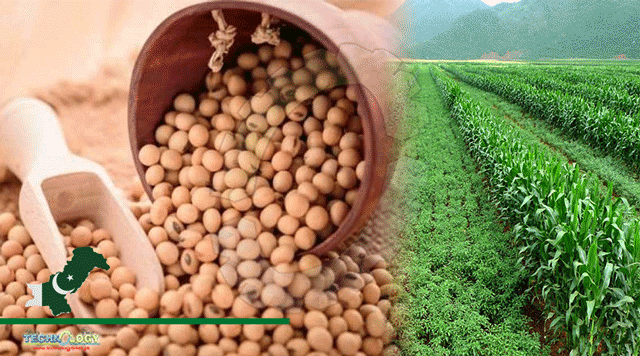Soybean is a legume rich in protein, fiber, vitamins, and minerals. It contains no cholesterol and is also low in saturated fat.

There is an ongoing debate about whether meat- or plant-based diets are better for human health and the environment. In recent years, Soybean has emerged as a popular alternative to meat for its nutritional benefits and lower environmental impact.
Soybean is a legume rich in protein, fiber, vitamins, and minerals. It contains no cholesterol and is also low in saturated fat. Soybean has been shown to have numerous health benefits, including preventing certain cancers and reducing the risk of heart disease and osteoporosis.
Soybean is also a good source of essential amino acids. Unlike animal-based protein, soybean protein is easily digestible and as effective as animal protein in building and repairing muscle.
Meat production has a significant environmental impact, contributing to deforestation, greenhouse gas emissions, and water pollution. In a report by the United Nations, livestock production is responsible for 14.5% of global GHG emissions.
Meat production also requires vast amounts of land, water, and feed. Cattle farming, in particular, is a major contributor to deforestation in the Amazon rainforest, as forests are cleared to make way for grazing land and feed crops.
Soybean is often used as an alternative to meat in vegetarian and vegan diets, as it is a rich source of protein and has a meat-like texture. Soy-based products such as tofu, tempeh, and soy milk are becoming increasingly popular as more people seek plant-based meat alternatives.
Soybean production also has a lower environmental impact than meat production. Soybean farming requires less water and land than cattle farming and produces fewer greenhouse gas emissions. In addition, soybeans are a more efficient use of resources, as they require fewer inputs to produce the same amount of protein as meat.
Soybean is a nutritious alternative to meat in terms of protein and essential nutrients, but without the health risks associated with high cholesterol levels and saturated fats found in meat. Soybean is also associated with a reduced risk of certain diseases and can be part of a healthy, balanced diet.
In terms of the environment, soybean production has a lower environmental impact than meat production, contributing less to deforestation, greenhouse gas emissions, and water pollution. Plant-based options such as soybean can help reduce our environmental impact and support more sustainable food systems.
In conclusion, soy is a nutritious and sustainable alternative to meat that offers numerous health benefits and has a lower environmental impact. Choosing soybean-based products can be part of a healthy, balanced diet and help reduce our environmental impact. While the debate about meat versus plant-based diets continues, incorporating soybeans can be a positive step towards a healthier and more sustainable future.
